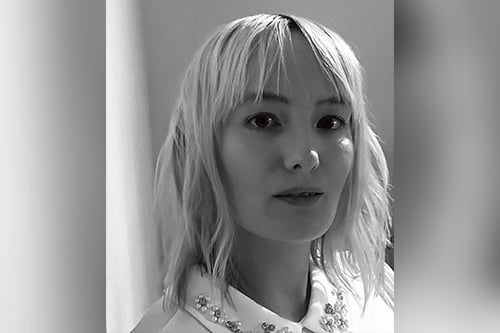

“Somebody’s mother.” That is the name by which most people know Mary Dow Brine’s 1878 poem (official title: A Noble Boy) which details the gallant actions taken by a young boy to look after an elderly woman. The sentiment of the poem is a lovely one that encourages care and kindness, a message we could all do with hearing more of these days.
But the mistitle of this poem and the message it delivers has been on my mind a lot lately. The murder of the young marketing professional Sarah Everard and the ‘Reclaim the Streets’ protests that have erupted in response to this harrowing crime have got me thinking about language and grammar and the way we each use possessive pronouns in our daily lives.
In the aftermath of such tragedies, of which there have been so many more than ever made the headlines, it is common to hear phrasings such as “it could have been my sister/daughter/wife/mother, etc.” And those men who do catcall, threaten or otherwise harm women are asked to consider how they would feel if it was their daughter, their sister, their mother who suffered such abuse.
But that discussion needs to change, and it needs to change now.
It is understandable that the well we all go to in times of crisis is the one that allows us to tap into empathy by translating a tragedy into the fear that haunts us all - that harm will come to those we love. But when we do that, we strip the victims of injustice of their individuality, and we make what happened to them about ourselves. We have to dig deeper and recognise the people around us as individuals, undefined by our connection to them.
I am a firm advocate of the irreversible link between language and culture, and I believe that the first steps to making this overhaul stem from language. Too often in a professional setting, we can find ourselves referring to “female leaders” and “women entrepreneurs”, a phrasing that makes us take a step back from seeing women as individual people. In doing so, we can all be guilty of recognising people by a characteristic that we do or don’t share with them, and using that to define our connection to them.
There can be little doubt that the insurance industry has made significant strides when it comes to embracing diversity and inclusion initiatives, and the impact these have had on the daily lives of so many working in the sector has been resounding. And I personally have found the measures taken to be a refreshingly innovative series of solutions - from flexible working, to paid emergency parental leave. I consider these measures more appealing than those such as diversity quotas or ‘reverse discrimination’ tactics, which I feel can imply that inclusivity is at odds with a solid business case.
Rather, I think business leaders and insurance professionals must start to evolve their definition of merit and explore new horizons on what it means to be a talented, dedicated professional. There’s no point in having a limited or outdated list of what you consider strengths if that locks certain individuals out of the conversation entirely and does not match what clients require from insurance services. When asked what sets them apart, women in the insurance industry tend to highlight the emphasis they place on empathy and on building inclusive environments, areas of focus that resonate strongly in the modern professional environment.
It was Anne Frank who reflected on the fact that “nobody need wait a single moment before starting to improve the world” and there are so many minute actions we can each take as members of the insurance profession to pave a better future - not for our daughters, our sisters, our friends, but for ourselves. And it begins with language and it begins with the way we see ourselves and each other and the weight we give to each other as individuals and not as members of subsets of society – whether that is through gender, or race, or age, or social standing.
Because Sarah Everard was not just somebody’s daughter, somebody’s girlfriend, or somebody’s friend, though she was all those things. She was also just Sarah Everard, and that was enough.
